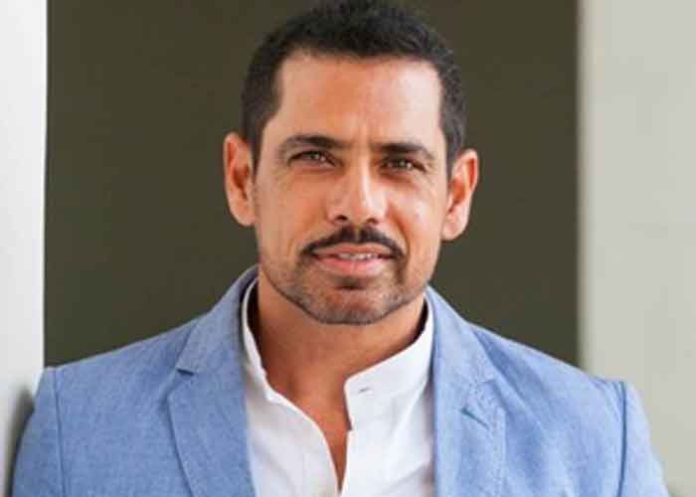Once the introductory chatter had died down and everyone was satisfied with their pick from the snack pile, a college intern laid out the teens’ assignment for that Tuesday afternoon: to draw what they feared in the current political climate.The same images came up repeatedly: vans with ICE written on the side and armed men outside of houses. One girl drew a cityscape, with an oversized X across it.
None of the teens at that session earlier this month had lost a parent to deportation, but the possibility weighs heavily, said Tania Chairez, founder of Convivir Colorado, which focuses on trauma associated with migration.Sixteen students who participate in Convivr’s programs live within one mile of the Denver-area apartment complexes that U.S.

Immigration and Customs Enforcement raided during a major immigration operation in February, and the conversation group is one way they work through their feelings about it, she said.“They’re sort of helping each other out,” Chairez said.Immigrant and first-generation American youth will need more mental health support as federal immigration enforcement becomes more aggressive under the Trump administration, and even those who don’t see a parent deported may experience negative effects from worrying about potential family separation and feeling unwelcome, experts say.
While the teens in Convivir’s Arts and Conversations Series drew, they took turns discussing why so many people, including immigrants who arrived years earlier, had negative views of newcomers.Camila Chavez, 13, said she thought some of the animosity was a reaction to being stereotyped, and the fear that others would look at established immigrant communities as negatively as they do recently arrived migrants who haven’t found work.“We put pressure on each other to be perfect, so when one of us messes up, we think it’s all going to fall apart,” she said.
Jusly Rodriguez Velasquez, 12, draws for a project during an Arts and Conversation workshop at the Convivir Colorado office in Denver on Tuesday, April 1, 2025. (Photo by Hyoung Chang/The Denver Post)Trauma of family separationChildren who lose a parent to an immigration arrest face a heightened risk of anxiety, depression, post-traumatic stress disorder, sleep problems and poor school performance, said Mitra Naseh, research director of the Initiative on Social Work and Forced Migration at Washington University in St. Louis.
But so do kids who fear losing a parent — but are never actually separated — and those separated by circumstances, such as Afghan children whose fathers resettled in the United States after helping the American military but haven’t been able to bring them along, she said.Family separation, or the prospect of it, is harder for kids to recover from than other types of trauma because children do best when they have adults in their lives who will meet their material and emotional needs, said Dr. Olivia Shadid, an assistant professor of psychiatry and behavioral sciences at the University of New Mexico School of Medicine.
Losing those attachment figures who made them feel safe is a “double hit” on kids’ wellbeing, she said.“To disrupt these attachment relationships..
. that really changes how kids see themselves, how they see the world,” Shadid said.Some studies suggest that immigration enforcement can harm people who feel threatened, even if they aren’t the target.
Babies born to Latina mothers with U.S. citizenship in the aftermath of a major immigration raid were more likely to have low birthweights than those born before the raid – an effect that didn’t show up in the children of white mothers.
Hispanic students in schools near raided workplaces also saw a drop in standardized test scores in the weeks afterward, though researchers haven’t determined if they later rebounded.Raids’ direct impact on a schoolLisyuri Gallardo, a school counselor at Denver’s Place Bridge Academy, said kids are afraid, even if they don’t have a parent at risk of deportation.Some believe false rumors that ICE is arresting children at school and others know their families aren’t in jeopardy, but worry about their friends’ undocumented parents, she said.
A lawsuit filed by Denver Public Schools seeking to prohibit most federal immigration arrests on school property singled out Place Bridge, which serves a disproportionate number of immigrant students.The suit alleged the sight of gun-toting federal agents and armored vehicles nearby during the large-scale Denver-area raids on Feb. 5 made Place Bridge students feel unsafe and caused some parents to question whether they should continue sending their children.
DPS officials, in court filings and previous interviews, have said at least four Place Bridge students were detained in the February raids, and multiple students had one or both parents arrested.A federal judge declined to order ICE away from schools while the lawsuit plays out.ICE said its February raids in Denver targeted gang members and other undocumented immigrants who had committed crimes, but the agency didn’t release information about the number of people detained or any charges they face.
Adults need to understand that children who are afraid or reeling from a loss can respond in ways that make them look like troublemakers, Gallardo said. While older kids may be able to talk through their feelings, young ones are more likely to shut down or act out, she said.Some have started missing school or running away during the day because they don’t feel safe.
“There were days (around the raids) when 50% of the students were not here,” she said.Camila Chavez, 13, works on a project during an Arts and Conversation workshop at the Convivir Colorado office in Denver on Tuesday, April 1, 2025. (Photo by Hyoung Chang/The Denver Post)Widespread fear in immigrant kidsTessa Nelson, program manager for early childhood and youth programs at the Spring Institute for Intercultural Learning in Denver, agreed that fear is widespread among immigrant kids.
The Spring Institute has youth and adult education programs aimed at immigrants.“I’ve had kids contacting me who are full-fledged American citizens, wanting to know, ‘Can my citizenship be revoked?’ ” she said. (It can’t.
)Immigrants, regardless of the path they took to the United States, see the country as a source of hope after life became untenable in their homelands, said Gallardo, who immigrated from Venezuela in 2009. Hearing that significant numbers of Americans don’t want them here is difficult, especially for those who faced danger and may have seen other migrants die on the journey north, she said.“Surviving immigrating is hard enough, but when you get here and you’re not welcome, that’s really challenging,” she said.
Place Bridge responded to the raids by increasing classroom time spent on stress management skills such as breathing exercises and meditation, Gallardo said. Students who need a bit more support can stop by to talk during the “lunch bunch” group she leads, and individual counseling is available for those who are struggling the most.But one of the most important things the school can do is keep routines going, she said.
“The more we can provide consistency, the better the little ones do,” Gallardo said.“In control of an uncontrollable circumstance”Keeping families involved in school and other activities despite their immigration fears can help soften the blow to kids, particularly if the community provides the sense of belonging that all young people seek out, Shadid said.Adults around them have to be deliberate about it, though, because people who are afraid of being found out tend to withdraw from social interactions, which doesn’t help their mental health, she said.
Related ArticlesJury awards $4 million to mother of man who died in Colorado jailColorado murder victim’s husband sues hospital, says staff should have recognized suspect’s mental illnessDenver will increase police presence downtown, including a mounted horse patrol, to boost safetyColorado school district rejects donation of “banned” books to be returned to library shelvesColorado, 22 other states sue Trump administration over decision to rescind billions in health fundingFeeling that they’re doing something to help address their fears also helps kids, Nelson said. That can be as simple as memorizing contact information for their parents and someone they could go to in an emergency, or practicing a refusal to answer questions without a parent present, she said.“That helps you feel more in control of an uncontrollable circumstance,” she said.
Adults also need to shield kids from mistreatment, and not only from people their own age, Nelson said.At a recent trip to the Denver Zoo Conservation Alliance, she had to step in when an adult man started berating an elementary-aged student who he believed was an undocumented immigrant from Latin America, she said. (The boy was Burmese and had refugee status.
)“He just saw the color of a kid’s skin and decided to yell at an 8-year-old,” she said.While kids are generally resilient, they can’t learn when they get stuck in fight-or-flight mode, Gallardo said. Most immigrants are dealing with loss, whether of their home, family members who stayed behind, or people who didn’t survive the journey, she said.
The possibility of further losses through detention or deportation brings that trauma back to the surface.“Right now, a family may not be going through a separation, but because they have gone through it, it’s like it’s happening” again, she said.Sign up for our weekly newsletter to get health news sent straight to your inbox.
.
Health

Colorado’s immigrant, first-generation youth need mental health support in face of deportation push, experts say

While the teens in Convivir’s Arts and Conversations Series drew, they took turns discussing why so many people, including immigrants who arrived years earlier, had negative views of newcomers.















